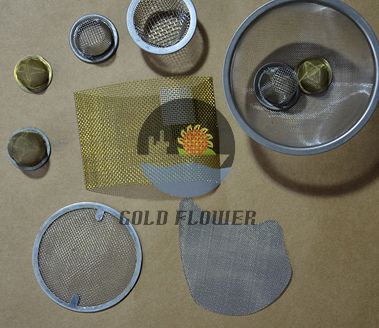loka . 18, 2024 11:41 Back to list
Top Quality Wire Screen Mesh for Optimal Performance and Durability
Understanding the Best Wire Screen Mesh A Comprehensive Guide
Wire screen mesh plays a crucial role in various industries, ranging from agriculture to construction, filtration, and more. This versatile material comes in different types and specifications, making it essential to understand its characteristics and applications to choose the best option for your needs.
What is Wire Screen Mesh?
Wire screen mesh, often referred to as wire mesh or wire cloth, is a grid-like structure made from woven wires. These wires can be made of various materials, including stainless steel, galvanized steel, aluminum, or brass, and are used to create a mesh that allows for air, light, and liquids to pass through while keeping larger particles contained.
Types of Wire Screen Mesh
1. Stainless Steel Mesh Known for its corrosion resistance, stainless steel mesh is perfect for environments that involve exposure to moisture or chemicals. It is widely used in food and beverage processing, pharmaceuticals, and chemical industries.
2. Galvanized Wire Mesh This type is coated with a layer of zinc to prevent rusting, making it suitable for outdoor applications. Galvanized wire mesh is commonly used for fencing, animal enclosures, and construction projects.
3. Aluminum Mesh Lightweight and resistant to rust, aluminum mesh is often used in applications where weight is a concern. It’s great for screens, vents, and lightweight construction applications.
4. Brass Mesh While less common, brass mesh offers good conductivity and is used in specialized applications, such as electronics and decorative purposes.
Factors to Consider When Choosing Wire Screen Mesh
When selecting the best wire screen mesh for your specific needs, consider the following factors
best wire screen mesh

1. Material Choose a material that suits your environment. For instance, if you need durability and corrosion resistance, stainless steel is preferable. If cost-effectiveness is a concern, galvanized or aluminum may be more suitable.
2. Mesh Size The size of the openings in the mesh determines what particles can pass through. A finer mesh is ideal for filtering out small particles, while a coarser mesh offers greater airflow and visibility.
3. Wire Diameter Thicker wires provide greater strength and durability, while thinner wires might be more flexible but less robust. The wire diameter also affects the weight and handling of the mesh.
4. Weaving Pattern Wire meshes are typically woven in different patterns, such as plain, twill, or dutch weave. Each pattern offers unique benefits in terms of strength, filtration, and flexibility.
5. Chemical Resistance For applications involving harsh chemicals, ensure the wire mesh material is compatible and resistant to degradation.
Applications of Wire Screen Mesh
Wire screen mesh finds applications across a variety of industries. Some common uses include
- Filtration In industries like water treatment, pharmaceuticals, and food processing, wire mesh is key for filtering particles and ensuring product purity. - Construction Used for reinforcement in concrete, wire mesh helps improve structural integrity and prevents cracking. - Agriculture Wire mesh fences protect crops from pests and animals, while also serving as trellises for climbing plants. - Waste Management In recycling and waste processing, wire mesh helps separate materials based on size, enhancing efficiency.
Conclusion
Choosing the best wire screen mesh depends on understanding your specific requirements and the characteristics of various mesh types. By considering material, mesh size, wire diameter, weaving pattern, and chemical resistance, you can make an informed decision that meets your needs effectively. Whether for industrial, agricultural, or construction purposes, the right wire screen mesh can significantly enhance the efficiency and quality of your applications. Remember, investing in high-quality mesh is paramount to achieving the desired results and ensuring durability in the long run.
share
-
Security Fly Screens for Windows Steel, Insect-Proof & Burglar-Resistant
NewsJun.01,2025
-
5 Micron Filter Cartridge 20 Inch - High Capacity & Durable Filtration
NewsJun.01,2025
-
20x20 Air Filters High-Efficiency HVAC & AC System Solutions
NewsMay.31,2025
-
60 Inch Chain Link Fence Heavy-Duty Security & Easy Installation
NewsMay.31,2025
-
1 8 Wire Mesh Screens for Sale - Durable Stainless Steel & Galvanized Options
NewsMay.31,2025
-
16x25x4 Air & Furnace Filters – High MERV, Durable & Efficient 60+ Day Lifespan
NewsMay.31,2025

